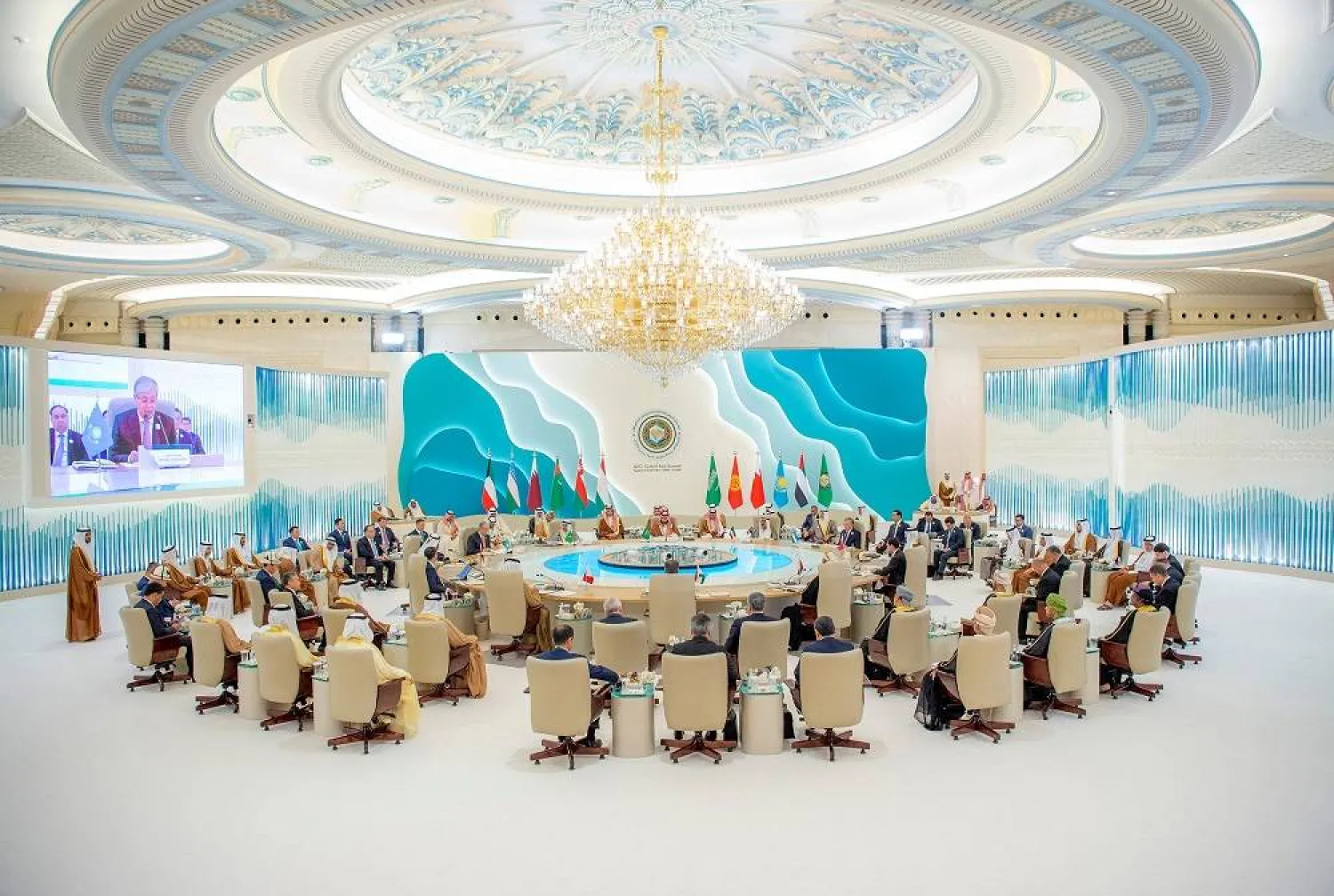Leaders of the Gulf Cooperation Council (GCC) and the Central Asian Five (C5) nations emphasized on Wednesday the importance of enhancing strategic and political dialogue among their countries.
They highlighted the need to foster new partnerships across various domains, including political and security dialogues, economic and investment cooperation, as well as promoting people-to-people communication.
In conclusion of their inaugural summit held in Jeddah on Wednesday, the leaders emphasized the importance of developing interconnected transportation routes between the two regions.
They also stressed the need to establish robust logistical and trade networks, as well as efficient systems that facilitate the exchange of goods.
The leaders expressed gratitude to Saudi Arabia for hosting this historic summit and announced that the next summit will be held in Samarkand, Uzbekistan, in 2025.
A joint statement was issued, encompassing various areas of shared interest, with a major focus on bolstering cooperation in the fields of green economy, digital economy, innovation, and green technology.
The leaders also welcomed Saudi Arabia’s decision to host the Gulf and Central Asia Investment Forum in the final quarter of this year, as well as the initiatives by Turkmenistan and Kyrgyzstan to host the Investment Forum in their countries in 2024.
During their meeting, the leaders engaged in discussions on regional and international issues, finding common ground in the pursuit of peace, security, stability, and prosperity on a global scale.
They stressed the utmost importance of international peace and security, advocating for mutual respect and cooperation among nations to foster development, progress, and good relations between neighbors.
Furthermore, they underlined the need to uphold the sovereignty, territorial integrity, and political independence of all states while refraining from interfering in their internal affairs.
In addition, the leaders reiterated their commitment to non-use and non-threat of force, underscoring the preservation of the international order based on adherence to the principles of international law and the UN Charter.
Expressing deep concern over the escalating risks of nuclear confrontations among nuclear-armed states, they strongly condemned any actions that pose an unacceptable threat to global peace and security, categorically rejecting the use of nuclear weapons.
The leaders commended the cultural diversity, openness, and rich historical heritage of both the GCC and Central Asian nations. Nevertheless, they voiced apprehension about the rising rhetoric of racism and Islamophobia, as well as acts of violence targeting Muslim minorities and symbols of Islam.
On the economic front, the leaders stressed the ongoing efforts to boost trade and economic cooperation and encourage joint investments.
They envisioned achieving this goal by fortifying relations between financial and economic institutions, as well as business sectors on both sides.
Furthermore, they pledged to explore collaborative opportunities, creating an appealing business environment that fosters trade, joint investments, and economic cooperation, ultimately leading to mutual benefits for all parties involved.









